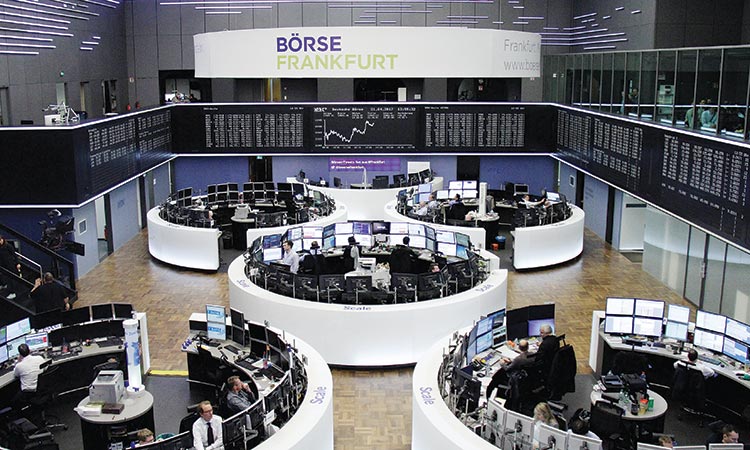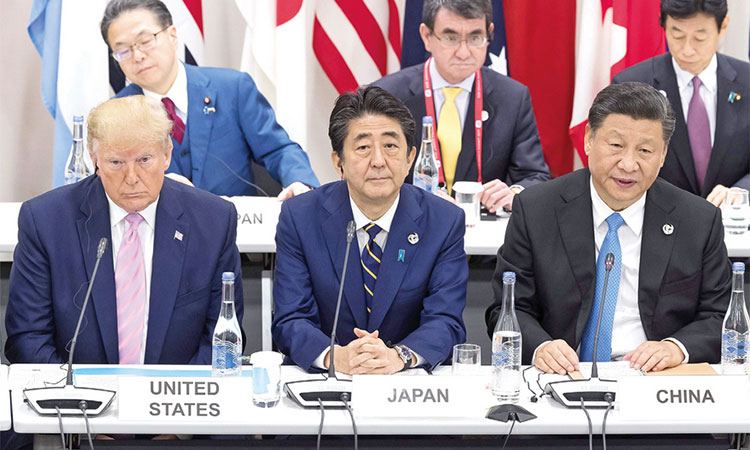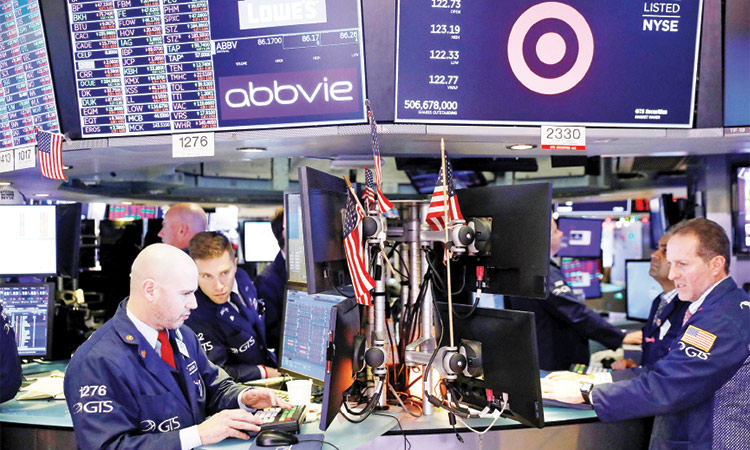World stocks dive as Trump threatens China

Donald Trump
Equities in Asia, Europe and the US were a sea of red as Trump›s remarks rekindled fears of a trade war with potentially devastating consequences for world growth.
On Wall Street, the Dow Jones index lost over 400 points at the New York opening bell, while eurozone markets were down by more than 1.5 per cent at that time, having earlier plunged more than two per cent.
Asian exchanges saw some of the worst falls, with Shanghai plunging more than five per cent, and the Chinese yuan also taking a battering after the president threw a spanner into the high-level negotiations.
“For 10 months, China has been paying Tariffs to the USA of 25% on 50 Billion Dollars of High Tech, and 10% on 200 Billion Dollars of other goods,” Trump tweeted Sunday night. “The 10% will go up to 25% on Friday.” - ‹Sledgehammer, walnut› - The warning threw a shadow over the next round of talks ahead of a visit by a Chinese delegation to Washington this week.
A number of news outlets reported that China was considering delaying or cancelling the meeting, but a foreign ministry spokesman said a delegation would head to the US as planned.
“The period of historic calm across global financial markets is staring at the prospect of a rude awakening,” said Han Tan, market analyst at FXTM. “Risk-off sentiment has been the response to this swerve from Trump.” The two sides have imposed tariffs on $360 billion in two-way trade since last year. But Trump and China›s Xi Jinping agreed a truce in December, fuelling a surge in global stocks for the past four months.
“Trump has taken the proverbial sledgehammer to the walnut this morning and the only two words likely to be on the minds of traders and investors this week are ‹trade talks›,” said OANDA senior market analyst Jeffrey Halley. News that the People›s Bank of China would slash the amount of cash lenders must keep in reserve, to support small businesses, had little impact in the face of Trump›s warning.
“Trade had been put to the side by many market participants,” said Andrew Tilton, chief Asia-Pacific economist at Goldman Sachs.
But Trump›s threat now “raises the spectre of a significant hit to growth should these tariffs escalate and should the uncertainty associated with that weigh on investment going forward”, he told Bloomberg TV.
The yuan sank 1.3 per cent at one point against the dollar, its heaviest fall in more than three years.
“Investors will remain bearish on the yuan, as they reprice in trade war risks,” Ken Cheung, senior foreign-exchange strategist at Mizuho Bank. “The news was unexpected.” Flight to safety saw the dollar surge across the board, particularly against higher-yielding, higher-risk units, although the yen held its own against the greenback.
On oil markets, both main contracts were hammered by worries that a trade war between the world›s top two economies could hit demand.
However, Stephen Innes at SPI Asset Management remained positive, calling Trump›s tweet “political posturing”. A deal was still likely, said Innes.
Raoul Leering, head of international trade analysis at ING, agreed, saying both sides had invested too much political capital in the talks to allow them to fail.
“We still expecte a US-China trade deal,” he said.
Meanwhile, China said on Monday that a delegation was still preparing to go to the United States for trade talks, even as US President Donald Trump dramatically increased pressure on Beijing to reach a deal, saying he would hike tariffs on Chinese goods this week.
Trump›s comments on Sunday marked a major escalation in tensions between the world›s two largest economies, and a shift in tone from the president, who as recently as Friday had cited progress toward a deal.
Stock markets sank and oil prices tumbled on his remarks, as negotiations to end the months-long trade war were thrown into doubt.
“We are also in the process of understanding the relevant situation. What I can tell you is that China›s team is preparing to go to the United States for the discussions,” Chinese Foreign Ministry spokesman Geng Shuang told a news briefing.
But Geng did not say if Vice Premier Liu He, who is China›s lead official in the negotiations, will be part of the delegation as originally planned. Negotiations are set to start May 8 in Washington.
“What is of vital importance is that we still hope the United States can work hard with China to meet each other half way, and strive to reach a mutually beneficial, win-win agreement on the basis of mutual respect,” Geng said.
Agencies







